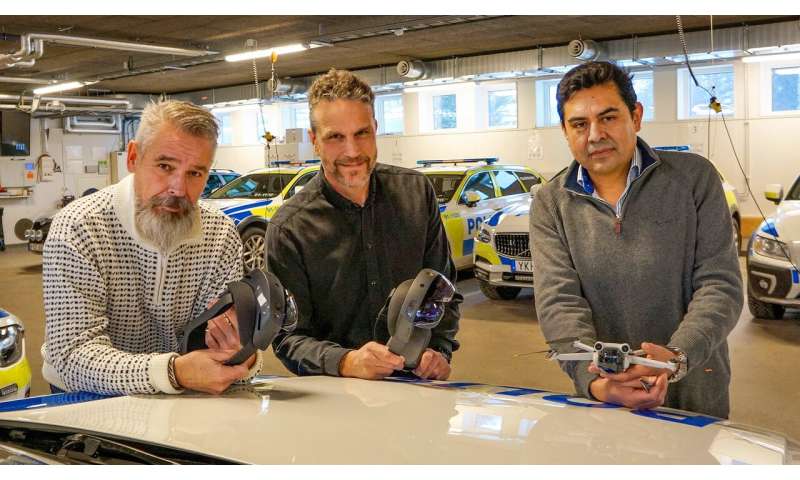AI and mixed reality technology for the future of police training

Police officers will be able to use AI and new mixed reality technology to test and develop ways to improve situational awareness in critical situations such as gang violence and shootings. "Our responsible AI research will be directly useful for police officers in the field," says Juan Carlos Nieves Sanchez, associate professor and research leader in computing science at Umeå University.
AI is now being tested in an increasing number of societal sectors, including the Swedish Police Authority. In Umeå, a collaboration between the Department of Computing Science, the Police Education Unit at Umeå University, Comet Global Innovation and Mossos d'Esquadra, the police squad in Barcelona, is now underway.
What distinguishes this research project from others is its focus on developing advanced solutions with the utmost consideration of ethical aspects. "There are numerous benefits of AI, but there are also risks. In this project, we aim to facilitate and protect the police in their work while also protecting human rights," says Juan Carlos Nieves Sanchez.
Visualizing information
He cites the recent shooting in the U.S., the events at Drottninggatan, Stockholm, and gang crime as examples. "Being a police officer in such situations is difficult. With responsibly designed AI and new mixed reality technology, it would be possible to give the police a bigger picture, right on the spot. This is due to the technology's ability to weave together information from, for example, the command center, drones and social media so that they become visually visible," says Juan Carlos Nieves Sanchez. "Through advanced glasses, you see not only the situation you are in but also other information and data."
Responsible AI solutions
Juan Carlos Nieves Sanchez is one of many internationally renowned researchers currently working at Umeå University who wish to influence the development of AI in a positive direction. "We want to ensure that the new technology is used in the right way so that it does not harm society and people. We also follow the discussions on the new EU regulation on artificial intelligence," he says.
Most involved in the project is Jonas Hansson, researcher and lecturer in police work, especially police conflict management at the police education unit at Umeå University.
As a former police officer, Hansson knows what to do in critical situations. "The police are facing new challenges that require other types of solutions. We use a variety of technologies and simulators to improve and streamline our work, but we want to go further. In this collaboration, we hope to provide the police with advanced support to quickly create an understanding of a situation to act in a legally secure way," says Jonas Hansson.
Reverse the negative trend
Here, it is crucial to start with the users—the police officers on site.
"The challenge is to get them to analyze their needs and at the same time see new possibilities for problems they may not be fully aware of. What is important is that we avoid the negative effects that technology can bring," says Jonas Hansson.
The Department of Computing Science and the Police Education Unit at Umeå University have recently started working together on education and research. Both Hansson and Nieves Sanchez see several long-term positive effects from the collaboration. "We are hopeful that the strong AI research at Umeå University can contribute to reversing the negative social development in terms of crime that we have seen in Sweden in recent years," says Jonas Hansson.
Provided by Umea University